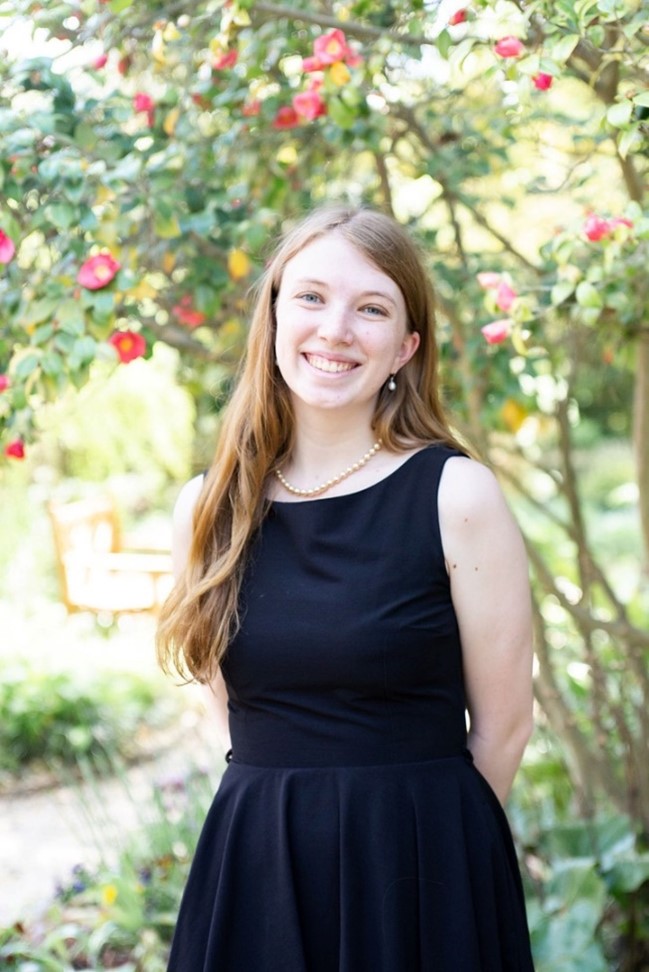PhD Candidate Natalie Luffman Receives Prestigious F31 Award from the National Institute of Health

Natalie Luffman from the Human Genetics program, Department of CMGM, secures an NIH F31 award for her PhD dissertation on therapy-induced senescence in head and neck cancer
Natalie Luffman, a 4th-year PhD candidate in the Department of Cellular, Molecular, and Genetic Medicine (CMGM), VCU, has been awarded the prestigious Individual Pre-Doctoral F31 Award from the National Institutes of Health for her grant titled ‘Therapy-Induced Senescence as a Potent Therapeutic Target’, under the mentorship of Dr. Hisashi Harada, Professor, Oral & Craniofacial Molecular Biology, School of Dentistry, and co-mentor Dr. David Gewirtz, Professor, Pharmacology & Toxicology, School of Medicine. Other members in Natalie’s PhD dissertation committee include Dr. Devanand Sarkar, Dr. Jolene Windle, and Dr. Yue Sun.
“My journey in cancer research began with my interest in cancer’s genetic underpinnings and how it is considered a biological ‘riddle wrapped in a mystery’ with several avenues open for scientific investigation. Unfortunately, cancer is a devastating disease that often impacts us personally. After the loss of a close family member to cancer, I became even more invested in cancer research. Joining Dr. Harada’s lab at VCU in 2023 marked my first professional step towards a career in independent cancer research”, said Natalie. After starting her PhD research under the Human Genetics (HGEN) program, Natalie was encouraged by Dr. Harada and other HGEN faculty to apply for an NIH-F31 grant in her second pre-doctoral year, followed by a successful resubmission in her third year.
Natalie’s dissertation research focuses on exploring alternative therapeutic strategies for sensitizing therapy-induced senescent head and neck cancer (HNC). HNC is the 6th most prevalent cancer worldwide, and approximately 50% of the patients experience relapses even after responding to radiation or chemotherapy initially. This may be attributed to therapy-induced senescence and the cGAS-STING pathway, a key component of the innate immune response, which may be an underlying mechanism contributing to tumor senescence recovery. The awarded F31 grant proposes both in vitro and in vivo methodologies to investigate the role of cGAS-STING in proliferative recovery in therapy-induced senescence via its regulation of LIF (leukemia inhibitory factor). As LIF is associated with tumorigenesis, cell survival, and migration, a crucial section of the F31-funded study proposes to inhibit LIF via pharmacological, immunological, and genetic strategies to evaluate its role in senescent cell proliferative recovery. Natalie explains that LIF is often overexpressed in HNC patients, which may make it a successful therapeutic target to enhance proliferative recovery from senescence and thus mitigate tumor relapse.
.
While working on the NIH-F31 grant, Natalie has also published a first-author paper in IJMS on the role of PROTAC BET degraders as an alternative therapeutic strategy for overcoming cisplatin-resistance in head and neck squamous cell carcinoma (HNSCC) in vitro. Her work concludes that the PROTAC BET degraders ARV-825 and ARV-771 are effective in sensitizing cisplatin-resistant HNSCC to cell death, though additional in vivo work is necessary to explore their effectiveness.
When asked about her career plans post-dissertation, Natalie stated, “It’s difficult to pinpoint the next step, but I plan on potentially pursuing an industrial postdoc before gearing up for a position in biotech R&D”. Outside of the lab, Natalie dabbles in arts and crafts, including sewing, embroidery, and crochet. For Natalie, handicrafts are an extension of lab work as she describes that they’re precise, require concentration, and take some time to practice. “Your lab work and personal hobbies are both parts of your life; it’s important to nourish all aspects of your creativity to prosper.”
A note from Natalie to the upcoming pre-doctoral NIH-F31 applicants: The grant cycle is challenging and may even be frustrating at times, but it is absolutely rewarding to have completed your first NIH-style grant. Writing a grant is difficult, but going down a productive scientific rabbit hole is highly beneficial to growing your project expertise as well as building your career as a scientist. Good luck!
By Sumit Saha,
Department of CMGM, VCU SOM
Date: 1 August 2025